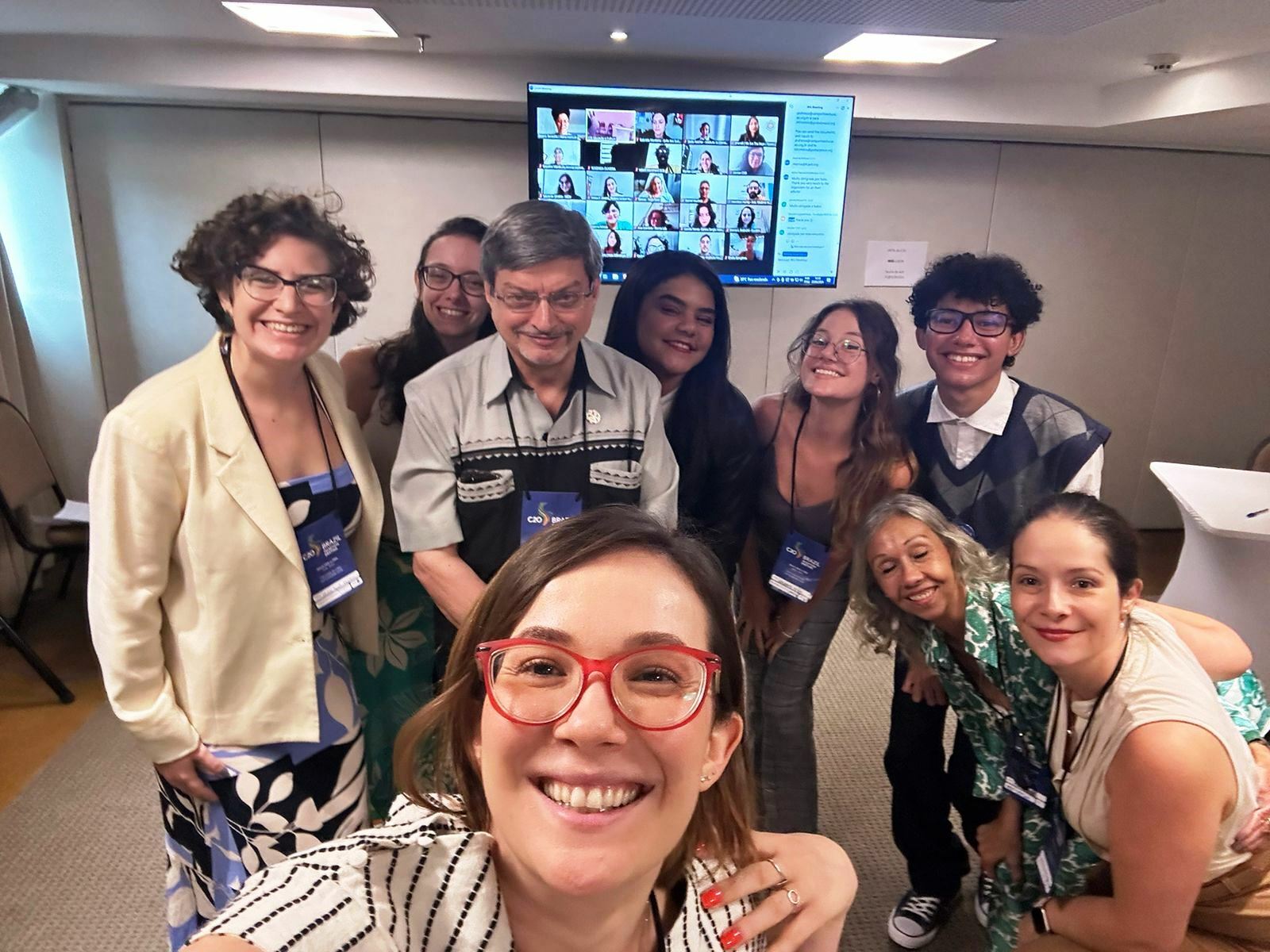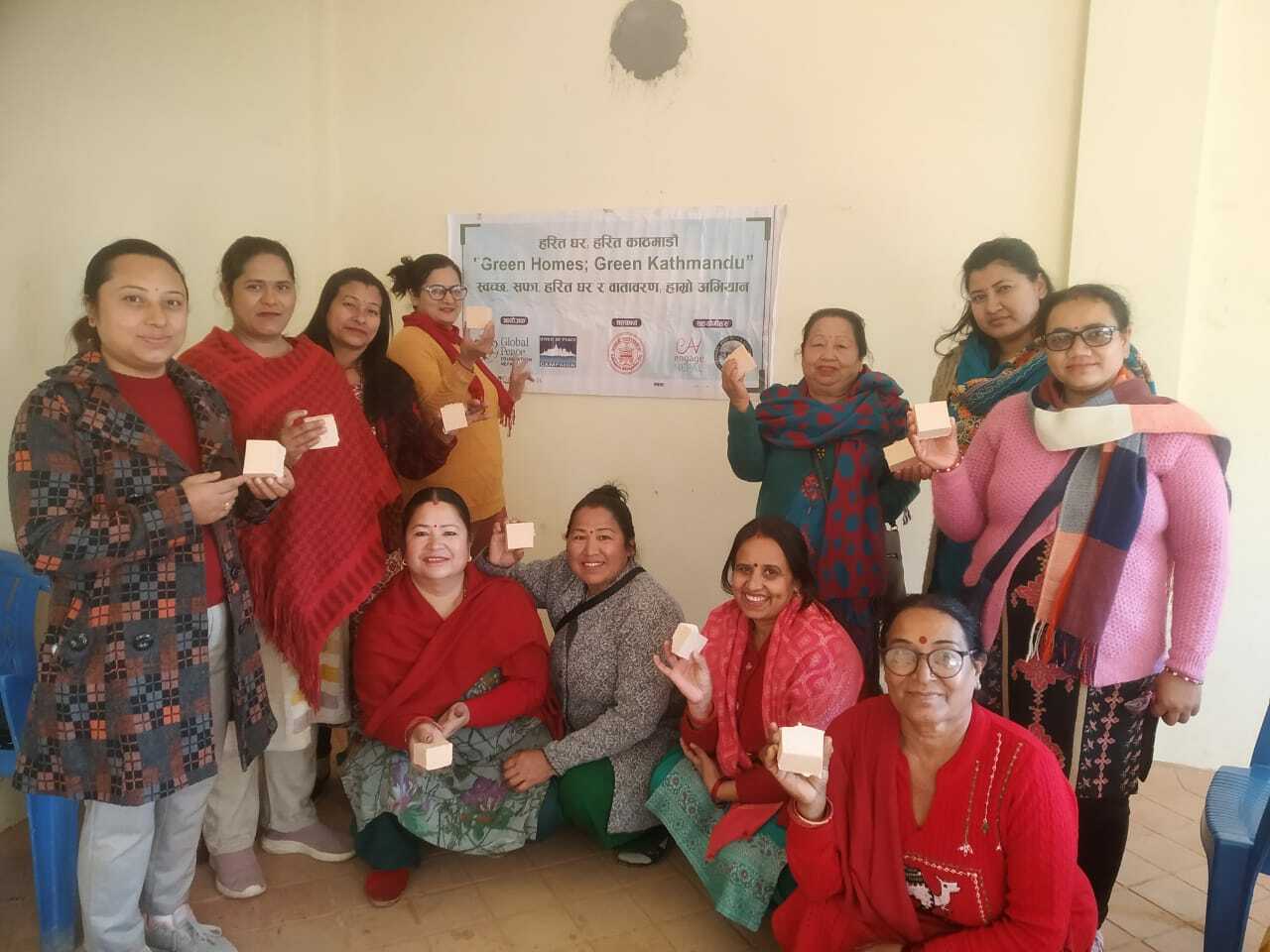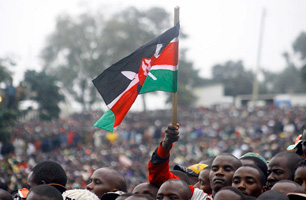
A Kenyan citizen raises a flag during the signing of the new constitution at Uhuru Park in Nairobi, Kenya. TOM MARUKA/FLIKR COMMONS
In a 2010 report, the World Bank described sub-Saharan Africa as the most formidable development challenge of the world. The report highlighted the pervasive corruption in Africa and took special note of widespread “quiet corruption,” a term referring to the “the failure of public servants to deliver goods or services paid for by governments” that do not involve monetary exchange.1 According to the watchdog organization Transparency International, six of the ten countries considered most corrupt in the world are in sub-Saharan Africa. A 2002 African Union study estimated that corruption cost the continent roughly $150 billion a year.
Kenya is exceptional in some respects as a stable democracy with many safeguards enacted to guard against corruption. In 1956 a Prevention of Corruption Act was adopted, and laws governing procurement have been continually passed to increase transparency. Yet according to a report by the U.S. based Council on Foreign Relations, “forty-five constitutional amendments have strengthened the executive’s power since independence in 1963; the judiciary is effectively controlled by the president. Kenya’s newspapers regularly investigate and break corruption stories, but the exposure of graft rarely results in legal proceedings.”
The issues of good governance and transparency were addressed directly during a recent forum sponsored by the Global Peace Festival Foundation, “Dealing with Corruption: Application of Principles and Values as Foundations for Effective Governance.” Officials from the Inuka Kenya Trust and Kenya Anti-Corruption Commission offered optimistic assessments of constitutional reforms in Kenya and credited President Kibaki and Prime Minister Odinga for their leadership in promoting national integration and government transparency. The Global Peace Convention 2010 is the second annual gathering of the Global Peace Foundation that was started in 2009 by its Chairman Dr. Hyun Jin Moon.
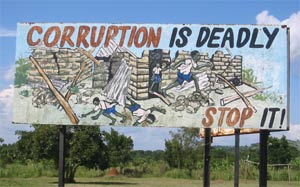
A billboard in rural Kenya KIKILACHO
“What the new Constitution is encouraging us to do is to become a value-based country,” Tom Mboya, the Deputy CEO of Inuka Kenya Trust, told the forum. “If you find that a constitution fails, there is a very high likelihood that the society itself is responsible for that failure. We have discovered in our history in Kenya the need for a value system in public service. This is critical. But a living constitution is one that citizens use in daily life. The national values of the federal constitution must be taken up on every level, sitting around the dining table in our home, in our schools, in our community.”
Mboya cited specific national values presented in new Constitution, including patriotism, integrity, human dignity, social justice, inclusiveness, equality, human rights, nondiscrimination, national unity, and protection of the marginalized. The charter also advanced public values of good governance, rule of law, democracy, transparency and accountability, and sustainable development.
“Chapter 6 deals with leadership and integrity and in my personal view this is one of the most important chapters,” Mboya said. “I believe it has the potential to reboot the national software to provide the guiding principles of conduct and integrity in public life.” The first section bases public office on integrity and competence in free and fair elections, he said. The second stresses objectivity and impartiality in decision making; the third underscored that service is based on the public interest and requires the declaration of any private interest that may conflict with public duties. The forth provides for accountability to the public, and the fifth demands discipline and commitment in service of the people.
“The new Constitution gives us an opportunity to redefine virtually everything—all these power relationships across the board. It introduces for first time the notion of who is a citizen and what are duties and responsibilities of citizenship.” – Tom Mboya, the Deputy CEO of Inuka Kenya Trust
“The Constitution sets a new leadership threshold,” Mboya declared. “It creates an emerging space for new leaders who must not demean the office they hold. They must act to preserve the integrity of the office.
“As individuals and organizations, we need to take an active part in the implementation of the new Constitution,” he said. “We need to engage ourselves and not believe that implementation is the preserve of a certain class. We should not by into the myth that the current political class is the only option we have. We need to take action to obtain the leadership we desire and deserve.”
Eliminating corruption
Corruption in government ranges from political graft at the highest levels of power to routine bribes to police and other public officials. According to the 2009 East African Bribery Index, more than half of East Africans polled had paid bribes for “free” public services. In addition to the corrosive effect on public trust in government, corruption undermines the political process, providing a perverse incentive for office holders to seek reelection for personal enrichment, as well as a guarantee of immunity from prosecution.

Kenya’s new Constitution places new emphasis on values and engaged citizenship, particularly education in ethics.
The challenge of eliminating corruption in government requires both political and institutional reform and an engaged and watchful citizenry, said Dr. Arborgust Akidiva, Director of Education of the Kenya Anti-Corruption Commission, at the forum.
“Generally corruption is taken to mean monopoly power plus discretionary power, minus accountability. When you have these conditions you may find yourself engaging in corrupt activities,”Akidiva said. “Corruption exists when there is opportunity plus inclination; you are inclined, which involves attitudes, values, and so on.
“There are also structural factors that lead to corruption taking root in Kenya,” he said. “That is why the new Constitution gives us an opportunity to redefine virtually everything—all these power relationships across the board. It introduces for first time the notion of who is a citizen and what are duties and responsibilities of citizenship. It’s easy to blame those in power but what our responsibility? In this country we have inverted values whereby a corrupt person who buys his way into Parliament is applauded, is seen as a leader. What political role do you play as a citizen under the Constitution?”
Reform and transparency
Dr. Akidiva said the Constitution provides safeguards for an independent judiciary and that anti-corruption and oversight legislation is in place. “We can see already some tension between the legislature and the executive,” he said, “and that tension is good. We are sizing each other up for accountability and transparency. Over the last 30 years we have made many reforms in procurement, contracting, education, and in the financial sector. My view is we have enough laws, agencies, and bodies. We need robust implementation. When these bodies work in unison the problem of corruption can be turned around in one election cycle. The question is, are we as a country ready to discharge our responsibilities?”
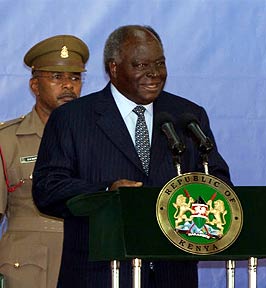
H.E. Kenyan President Mwai Kibaki addresses the Global Peace Convention in Nairobi. The president was a strong supporter of the new Constitution and urged Kenyans to unite to build a cohesive and peaceful country.
Akidiva also summarized the work of the Kenya Anti-Corruption Commission, including compliance testing for public officials, training programs in ethics, and integrity clubs in every learning institution across Kenya. “We are trying to mainstream the issues of integrity, good governance, and character formation,” he said. “In Kenya 20 percent of corrupt people are responsible for 80 percent of corruption. Our strategy is to focus on the 20 percent.
The challenge and opportunity presented by the new Constitution was also highlighted by H.E. President Kibaki in an address at the opening of the Global Peace Convention on November 18. “The challenge is now to forge forward with the agenda of national cohesion, as well as the reconciliation and healing process,” Kibaki told delegates from 40 nations. “These commitments are vital as they address any mistrust, bitterness or animosity that may undermine peace. I urge each and every Kenyan to take personal responsibility in our shared duty of building a cohesive and peaceful country. In addition to reconciliation and healing, our new Constitutional order has provided us with an opportunity to transform our nation.”
Editor’s note: In an August 2010 referendum, Kenyans voted overwhelmingly to adopt a new Constitution. The federal charter was strongly backed by Kenyan President Mwai Kibaki and Prime Minister Raila Odinga, who currently lead Kenya in a power-sharing arrangement following the disputed 2007 elections. The new Constitution implements a system of checks and balances and has been recognized as the most significant political achievement since Kenya’s independence in 1963. In a forum on governance at the 2010 Global Peace Convention in Nairobi, Kenyan experts evaluated the impact of government corruption and the opportunity and responsibility presented by the newly approved Constitution.

